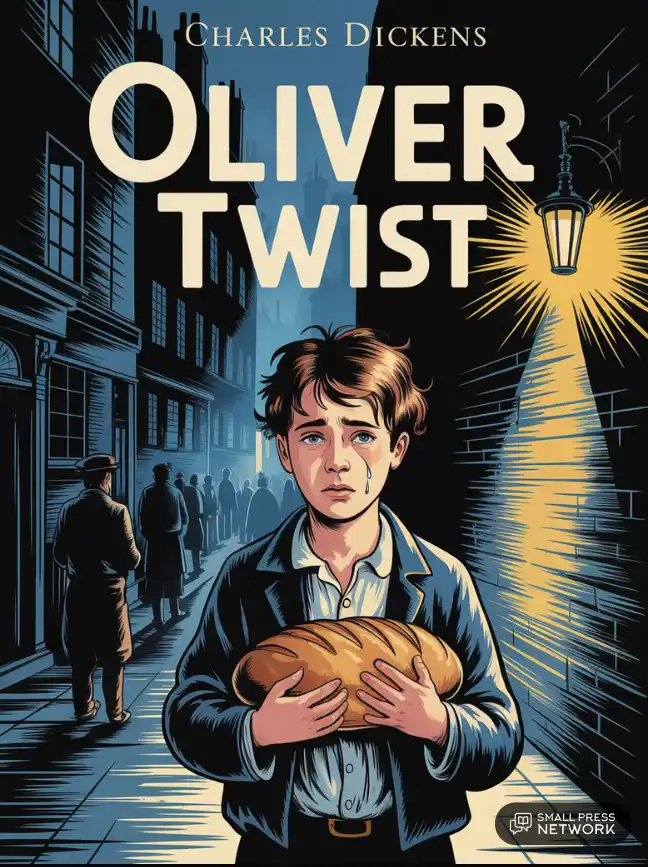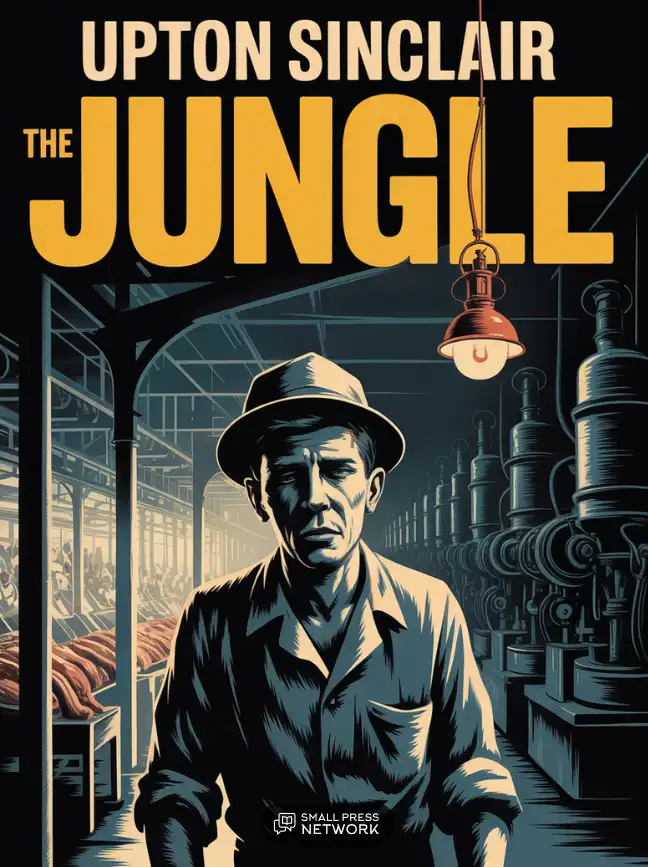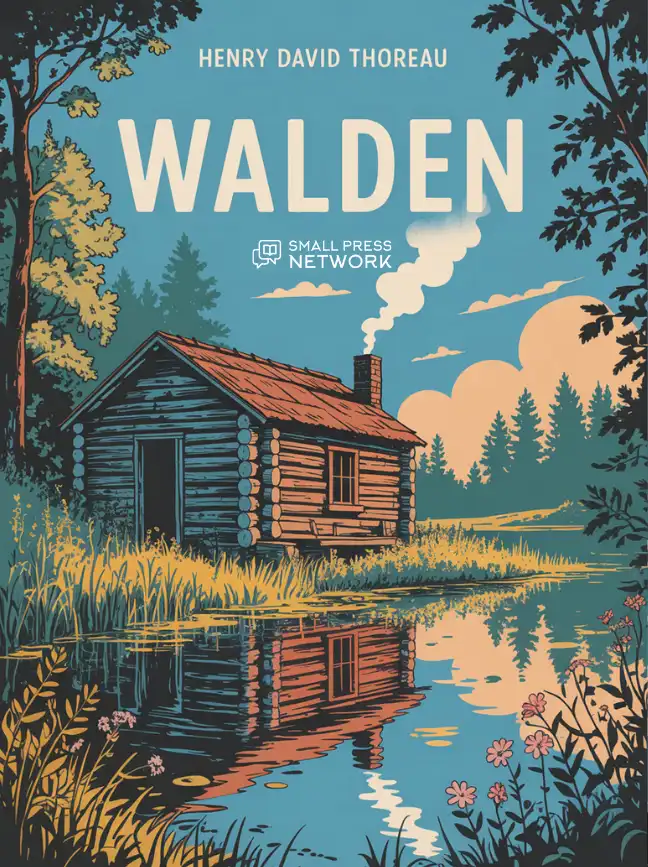.
The old man was up, betimes, next morning, and waited impatiently for the appearance of his new associate, who after a delay that seemed interminable, at length presented himself, and commenced a voracious assault on the breakfast.
“Bolter,” said Fagin, drawing up a chair and seating himself opposite Morris Bolter.
“Well, here I am,” returned Noah. “What’s the matter? Don’t yer ask me to do anything till I have done eating. That’s a great fault in this place. Yer never get time enough over yer meals.”
“You can talk as you eat, can’t you?” said Fagin, cursing his dear young friend’s greediness from the very bottom of his heart.
“Oh yes, I can talk. I get on better when I talk,” said Noah, cutting a monstrous slice of bread. “Where’s Charlotte?”
“Out,” said Fagin. “I sent her out this morning with the other young woman, because I wanted us to be alone.”
“Oh!” said Noah. “I wish yer’d ordered her to make some buttered toast first. Well. Talk away. Yer won’t interrupt me.”
There seemed, indeed, no great fear of anything interrupting him, as he had evidently sat down with a determination to do a great deal of business.
“You did well yesterday, my dear,” said Fagin. “Beautiful! Six shillings and ninepence halfpenny on the very first day! The kinchin lay will be a fortune to you.”
“Don’t you forget to add three pint-pots and a milk-can,” said Mr.
Bolter.
“No, no, my dear. The pint-pots were great strokes of genius: but the milk-can was a perfect masterpiece.”
“Pretty well, I think, for a beginner,” remarked Mr. Bolter complacently. “The pots I took off airy railings, and the milk-can was standing by itself outside a public-house. I thought it might get rusty with the rain, or catch cold, yer know. Eh? Ha! ha! ha!”
Fagin affected to laugh very heartily; and Mr. Bolter having had his laugh out, took a series of large bites, which finished his first hunk of bread and butter, and assisted himself to a second.
“I want you, Bolter,” said Fagin, leaning over the table, “to do a piece of work for me, my dear, that needs great care and caution.”
“I say,” rejoined Bolter, “don’t yer go shoving me into danger, or sending me any more o’ yer police-offices. That don’t suit me, that don’t; and so I tell yer.”
“That’s not the smallest danger in it—not the very smallest,” said
the Jew; “it’s only to dodge a woman.”
“An old woman?” demanded Mr. Bolter.
“A young one,” replied Fagin.
“I can do that pretty well, I know,” said Bolter. “I was a regular cunning sneak when I was at school. What am I to dodge her for?
Not to—”
“Not to do anything, but to tell me where she goes, who she sees, and, if possible, what she says; to remember the street, if it is a street, or the house, if it is a house; and to bring me back all the information you can.”
“What’ll yer give me?” asked Noah, setting down his cup, and looking his employer, eagerly, in the face.
“If you do it well, a pound, my dear. One pound,” said Fagin, wishing to interest him in the scent as much as possible. “And that’s what I never gave yet, for any job of work where there wasn’t
valuable consideration to be gained.”
“Who is she?” inquired Noah.
“One of us.”
“Oh Lor!” cried Noah, curling up his nose. “Yer doubtful of her, are yer?”
“She has found out some new friends, my dear, and I must know who they are,” replied Fagin.
“I see,” said Noah. “Just to have the pleasure of knowing them, if they’re respectable people, eh? Ha! ha! ha! I’m your man.”
“I knew you would be,” cried Fagin, elated by the success of his proposal.
“Of course, of course,” replied Noah. “Where is she? Where am I to wait for her? Where am I to go?”
“All that, my dear, you shall hear from me. I’ll point her out at the proper time,” said Fagin. “You keep ready, and leave the rest to me.”
That night, and the next, and the next again, the spy sat booted and equipped in his carter’s dress: ready to turn out at a word from Fagin. Six nights passed—six long weary nights—and on each, Fagin came home with a disappointed face, and briefly intimated that it was not yet time. On the seventh, he returned earlier, and with an exultation he could not conceal. It was Sunday.
“She goes abroad to-night,” said Fagin, “and on the right errand, I’m sure; for she has been alone all day, and the man she is afraid of will not be back much before daybreak. Come with me. Quick!”
Noah started up without saying a word; for the Jew was in a state of such intense excitement that it infected him. They left the house stealthily, and hurrying through a labyrinth of streets, arrived at length before a public-house, which Noah recognised as the same in which he had slept, on the night of his arrival in London.
It was past eleven o’clock, and the door was closed. It opened softly on its hinges as Fagin gave a low whistle. They entered, without noise; and the door was closed behind them.
Scarcely venturing to whisper, but substituting dumb show for words, Fagin, and the young Jew who had admitted them, pointed out the pane of glass to Noah, and signed to him to climb up and observe the person in the adjoining room.
“Is that the woman?” he asked, scarcely above his breath.
Fagin nodded yes.
“I can’t see her face well,” whispered Noah. “She is looking down, and the candle is behind her.
“Stay there,” whispered Fagin. He signed to Barney, who withdrew.
In an instant, the lad entered the room adjoining, and, under
pretence of snuffing the candle, moved it in the required position, and, speaking to the girl, caused her to raise her face.
“I see her now,” cried the spy.
“Plainly?”
“I should know her among a thousand.”
He hastily descended, as the room-door opened, and the girl came out. Fagin drew him behind a small partition which was curtained off, and they held their breaths as she passed within a few feet of their place of concealment, and emerged by the door at which they had entered.
“Hist!” cried the lad who held the door. “Dow.”
Noah exchanged a look with Fagin, and darted out.
“To the left,” whispered the lad; “take the left had, and keep od the other side.”
He did so; and, by the light of the lamps, saw the girl’s retreating figure, already at some distance before him. He advanced as near as he considered prudent, and kept on the opposite side of the street, the better to observe her motions. She looked nervously round, twice or thrice, and once stopped to let two men who were following close behind her, pass on. She seemed to gather courage as she advanced, and to walk with a steadier and firmer step. The spy preserved the same relative distance between them, and followed: with his eye upon her.





